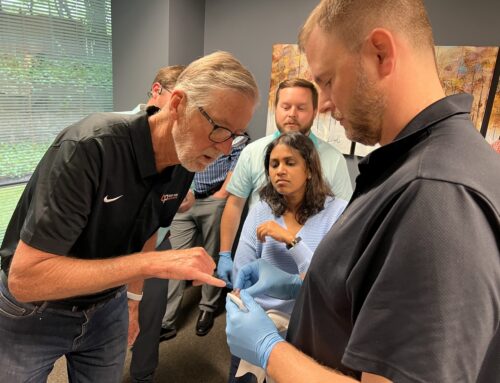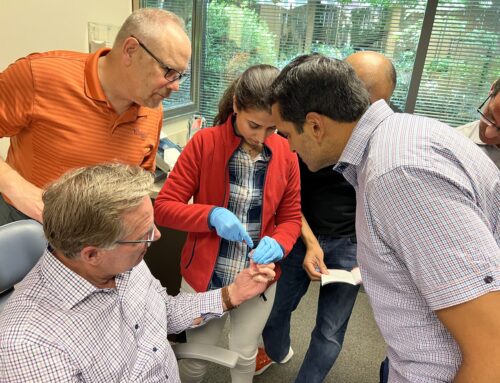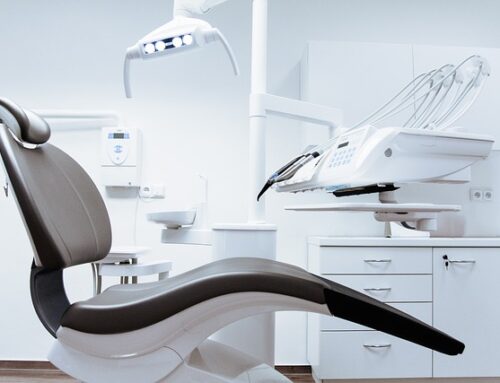To further relay just how important dental sleep medicine is, let’s contrast this area with periodontology. So, what is periodontology? It is a dental specialty that involves the prevention, diagnosis and treatment of diseases of the supporting and surrounding tissues of the teeth or their substitutes. It is also the maintenance of the health, function and esthetics of these structures and tissues. In other words, a periodontist is a dentist who specializes in the prevention, diagnosis and treatment of periodontal disease, as well as the placement of dental implants.
What is the difference?
While periodontology focuses on prevention, diagnosis and treatment, so does dental sleep medicine. However, dental sleep medicine dentists don’t do the diagnosing. Instead, dental sleep medicine dentists work with sleep physicians to gain a diagnosis after they might have noticed symptoms or signs of sleep disordered breathing or a patient’s responses to a questionnaire showed a possibility of this condition. From a diagnosis through a sleep physician, dentists can plan for proper treatment with oral appliance therapy.
Dental sleep medicine is a team atmosphere in which we must work together to prevent, diagnose and treat our patients. Periodontology doesn’t require the same team alliance and that doesn’t mean it is any less important because it is extremely important for our patients. However, dental sleep medicine takes the treatment of our patients to a whole new level that works to improve their health and their overall well-being.
What is the connection?
Periodontology and dental sleep medicine can also go hand-in-hand. Periodontology has been shown to affect the cardiovascular system and untreated sleep apnea affects it as well. Research has shown that periodontal disease is associated with several other systemic diseases.
For a long time, it was thought that bacteria was the factor linking periodontal disease to other diseases, but, more recently, research has shown that inflammation may be the culprit. By treating inflammation it may not only help to manage periodontal diseases, but also the management of other chronic inflammatory conditions, such as:
- Type 2 diabetes.
- Heart disease.
- High blood pressure.
- Acid reflux.
Sleep apnea also affects the body in the same way. From increased risk of cardiovascular disease to diabetes, comorbidities of sleep apnea are nothing to be ignored. By treating sleep apnea and periodontal disease, you can help your patients prevent further complications and systemic conditions.
What are you waiting for? Now is the time to take advantage by participating in upcoming lectures and seminars to get your education going in the right direction.






